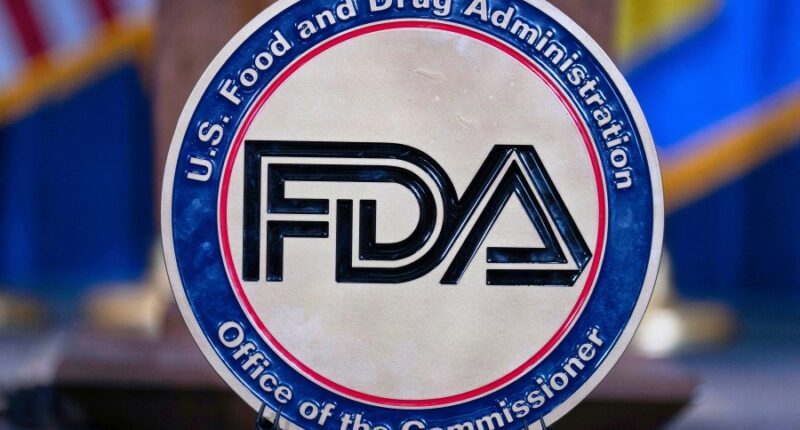Share this @internewscast.com

In a surprising turn of events, the head of the Food and Drug Administration’s drug center, Dr. George Tidmarsh, stepped down abruptly on Sunday. This resignation follows the initiation of a federal review into “serious concerns about his personal conduct,” as reported by a government representative.
Dr. Tidmarsh, who assumed his role at the FDA in July, was placed on administrative leave just last Friday. The Department of Health and Human Services’ Office of General Counsel was alerted to these concerns, prompting the leave, according to HHS press secretary Emily Hilliard. By Sunday morning, Tidmarsh had officially resigned from his position.
“Secretary Kennedy demands the utmost ethical standards from all individuals under his leadership and remains dedicated to ensuring complete transparency,” stated Hilliard.
Tidmarsh’s resignation coincided with a legal complaint filed by a pharmaceutical company linked to one of his former business partners. The lawsuit accuses him of making “false and defamatory statements” while holding his position at the FDA.
Aurinia Pharmaceuticals, the company filing the lawsuit, claims that Tidmarsh leveraged his role at the FDA to settle a “longstanding personal vendetta” against Kevin Tang, the chair of its board of directors.
The legal document also reveals that Tang was previously part of the board at multiple pharmaceutical companies where Tidmarsh served as an executive. His involvement allegedly led to Tidmarsh’s removal from those leadership roles, which is central to the lawsuit’s allegations.
Messages placed to Tidmarsh and his lawyer were not immediately returned late Sunday.
Tidmarsh founded and led a series of pharmaceutical companies over several decades working in California’s pharmaceutical and biotech industries. Before joining the FDA, he also served as an adjunct professor at Stanford University. He was recruited to join the agency over the summer after meeting with FDA Commissioner Marty Makary.
Tidmarsh’s ouster is the latest in a string of haphazard leadership changes at the agency, which has been rocked for months by firings, departures and controversial decisions on vaccines, fluoride and other products.
Dr. Vinay Prasad, who oversees FDA’s vaccine and biologics center, resigned in July after coming under fire from conservative activists close to President Donald Trump, only to rejoin the agency two weeks later at the behest of Health Secretary Robert F. Kennedy Jr.
The FDA’s drug center, which Tidmarsh oversaw, has lost more than 1,000 staffers over the past year to layoffs or resignations, according to agency figures. The center is the largest division of the FDA and is responsible for the review, safety and quality control of prescription and over-the-counter medicines.
In September, Tidmarsh drew public attention for a highly unusual post on LinkedIn stating that one of Aurinia Pharmaceutical’s products, a kidney drug, had “not been shown to provide a direct clinical benefit for patients.” It’s very unusual for an FDA regulator to single out individual companies and products in public comments online.
According to the company’s lawsuit, Aurinia’s stock dropped 20% shortly after the post, wiping out more than $350 million in shareholder value.
Tidmarsh later deleted the LinkedIn post and said he had posted it in his personal capacity, not as an FDA official.
Aurinia’s lawsuit also alleges, among other things, that Tidmarsh used his post at FDA to target a type of thyroid drug made by another company, American Laboratories, where Tang also serves as board chair.
The lawsuit, filed in U.S. District Court of Maryland, seeks compensatory and punitive damages and “to set the record straight,” according to the company.
___
The Associated Press Health and Science Department receives support from the Howard Hughes Medical Institute’s Department of Science Education and the Robert Wood Johnson Foundation. The AP is solely responsible for all content.

















